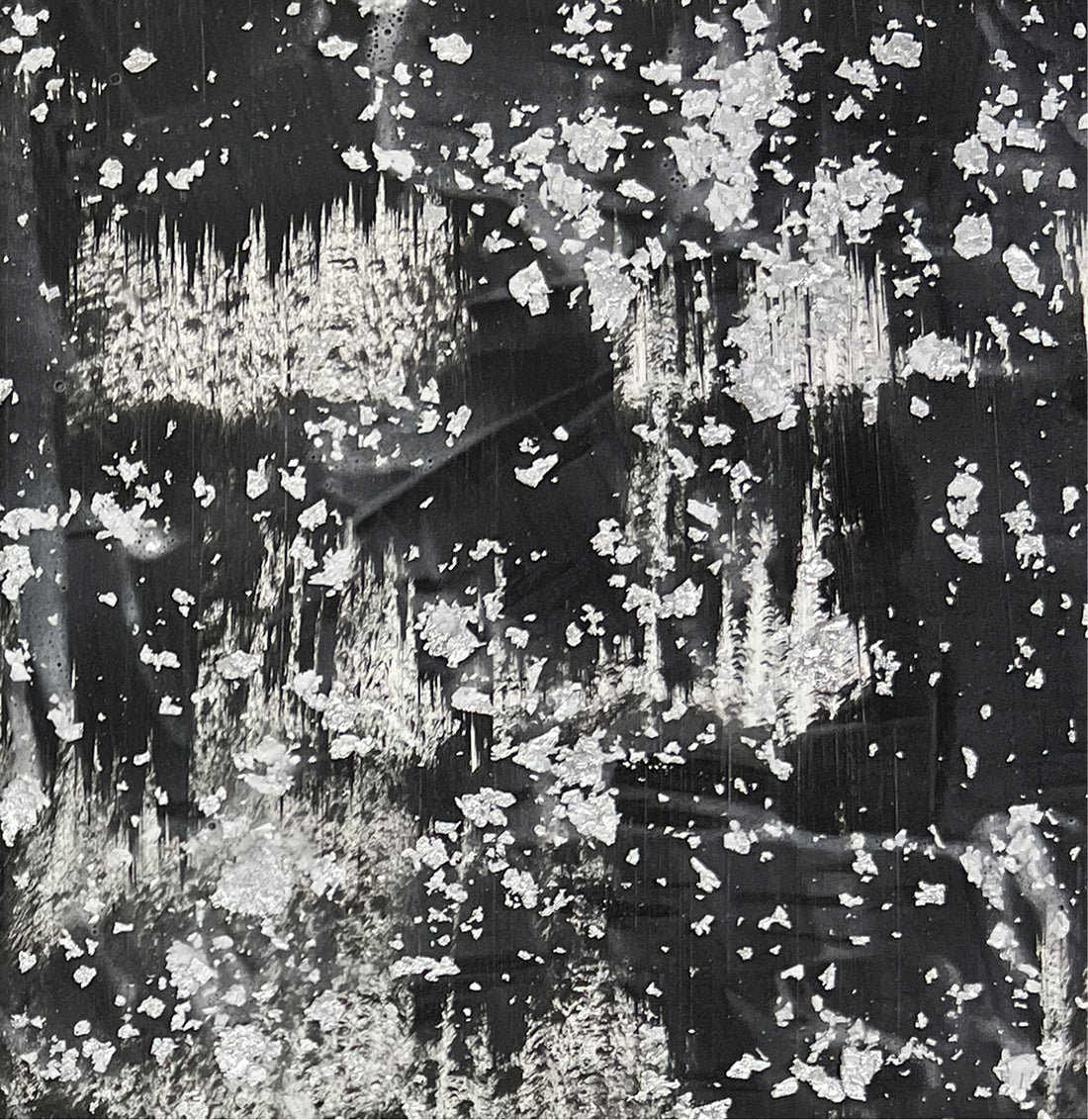Although I spent six combined years in college pursuing my BFA, and spent another 10-15 years very actively pursuing my art, my life "away from art" feels like it was longer.
When I made the decision to focus my life on art again in 2022, I needed to re-learn how to paint. And honestly, although there were things I showed talent at in the various phases of my undergraduate art studies, I don't think I was great at painting. That's what I was thinking at the time that I changed from a double major in painting and photography to pursuing just photography, back in the day.
So as a re-start-artist (restartist?) I needed to find my evolving voice, and I needed to build skills.
So in 2022 I spent a lot of time and consumed a lot of books, and practiced. I painted a lot, probably every day. Some of it was just thrashing around with materials, but I felt the brush and the paint, I absorbed pigment types and paint characteristics. I stepped back constantly to look at what I was painting, and sometimes it was good... but it felt somewhat chaotic. I was having a hard time defining the what and why of my painting direction. And I knew this was what I needed to be doing, this art thing, so I pressed on.
In 2023, I had begun refining my understanding of "what to paint" to include both abstraction / textures, and also the figure or human form. Knowing I was circling around figurative abstraction, I took a class from Melinda Cootsona, online, and it was filled with all sorts of jumping-off ideas and things to try. Having a new stream of ideas as input, and a structure for completing specific assignments, was incredibly helpful to shake things up a bit. During the arc of that course, I created two new favorite paintings.
After that class ended I kept circling around and trying to do more things based on what I’d learned. I wasn’t thinking too hard about creating specific outcomes, just “try more / paint more”. Also I was doubly sure that I needed to focus more intently on re-finding / rebuilding my skills in seeing and representing the figure; I'd been good at it once, but I was out of practice, rusty, and lacking confidence.
And: it’s a tough go, doing this when your own voice is the one you hear. And “your own voice” is sometimes the rational, patient one, and sometimes is what a fried of mine calls “brain weasels” - the critical, impatient voices that are eager to shout loudly inside your head that you’re failing and wasting your time.
My new painting ideas were intermittent. Painting skills were still re-emerging. The time it took to complete a painting seemed like forever. I knew I definitely needed to continue building the skills of representing form, and of applying paint. But I was also starting to realize I was missing other artistic voices, was missing community and critiques and mentoring and companionship.
In December of 2023, I had the fabulous experience of taking a figure workshop with Terry Miura. Four consecutive, insanely long days of drawing and painting left me exhausted and alert and all wired up, making amazing studies. I walked away with a new approach to drawing, to focus on light and shadow shapes and to try then to use my drawings as the basis of paintings. The knowledge that I need to draw the figure every day was deeply reinforced. So immediately following that workshop I began that enhanced and focused practice, and it has been amazing.
But, I needed more. In January of 2024, it started to dawn on me that I need to pursue mastery.
What does pursuing mastery mean, for a painter?
The easy go-to answer to “how do you pursue mastery in art” is “get an MFA”. I’ve looked at that, but I have already acquired and paid for a Master’s degree (albeit not related to art). Having the luxury to pursue an MFA would be amazing, but would require so many scarce resources: money, probably. Some MFA programs are funded, but predictably, not many and not easy to get. Time -- as in, the long cycle for application and acceptance -- and then the schedule for study that is someone else’s set of priorities (and might not leave much time for other priorities, if I had them). And location - the master’s programs that seem appealing to me are in other states, so would require me to live away from my home, husband, and cats. And significantly, on my first passes at reviewing master’s programs, I wasn’t blown away by the folks I’d be studying with, the faculty. This is undoubtedly not fair, because I don’t know enough about contemporary figurative abstraction and contemporary painting in general (more things I need to study!), but it was still disappointing.
Weighing this, I wondered if mastery didn’t need to necessarily come from a Master’s degree. There are other ways to acquire mastery - maybe not as linear and straightforward, but maybe more customized and tailor-fit. Artists acquired mastery for centuries before the first MFA program.
So I decided to start exploring what it might look like to pursue mastery without pursuing a formal Master’s degree. Would it be feasible to create something like a 2-year long construct that would deliver some degree of mastery, if I did it myself? And beyond feasible, how would I simultaneously be the dean of the program, the faculty, and the student?
It might be difficult. But I like hard challenges, and doing something seems like a better option than not doing something. And this is how I started exploring the idea of “rolling my own” MFA.
article-2024.018

